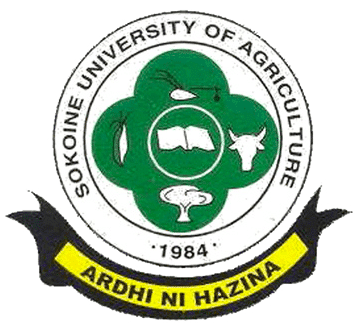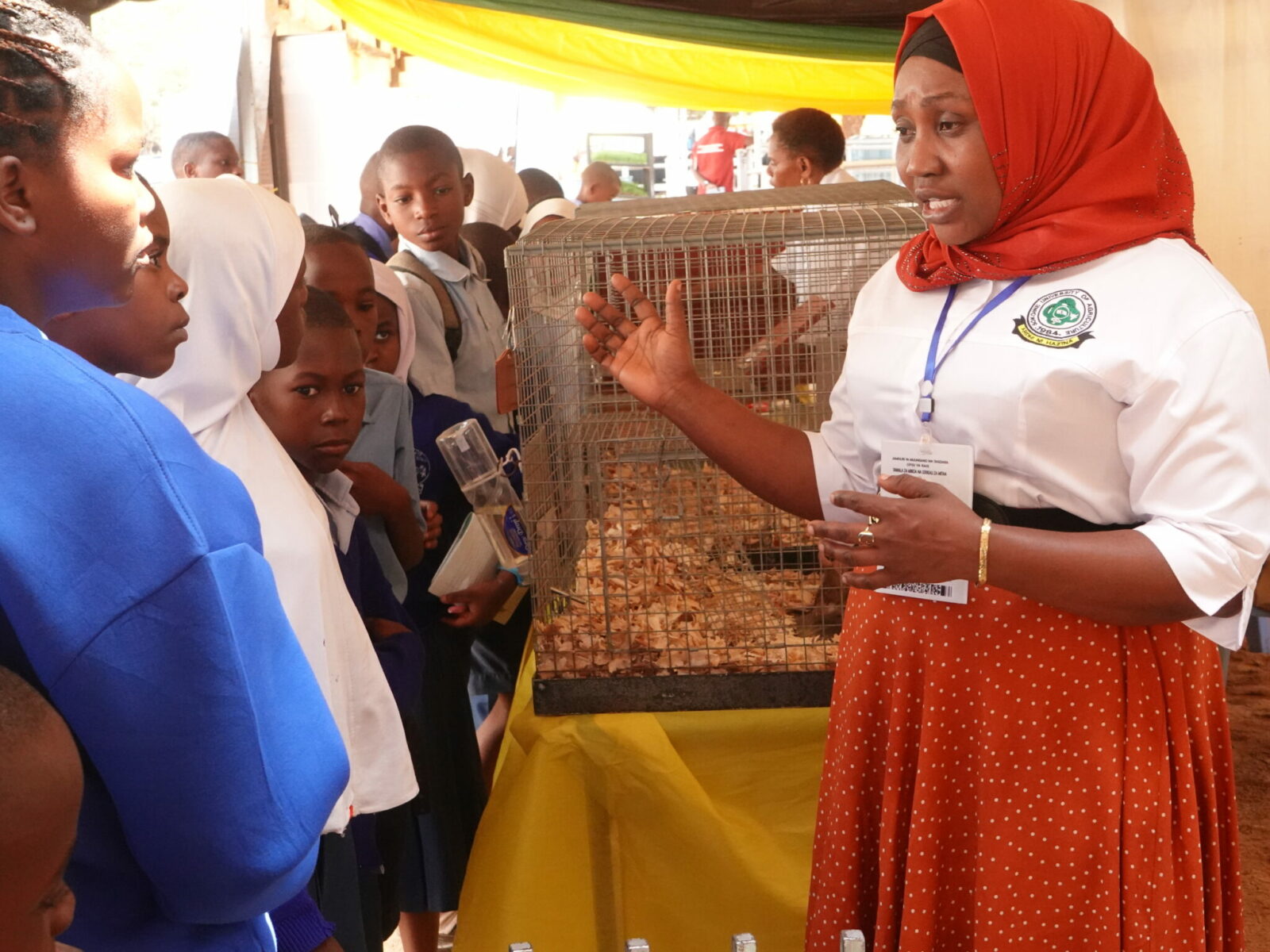On August 2, 2024, the annual agricultural exhibitions locally known as Nane Nane officially opened at the Mwalimu Julius Kambarage Nyerere grounds in Morogoro, Tanzania. The theme of this year’s exhibition was “Choose Good Local Government Leaders for Sustainable Development in Agriculture, Livestock, and Fisheries.” The exhibition, which ran until August 8, saw active participation from various organizations, including APOPO and its partner Sokoine University of Agriculture (SUA).
During the exhibition, APOPO showcased the unique abilities of our trained rats in a variety of roles, providing visitors with a deeper understanding of each of our programs.
APOPO Showcases Innovative Programs
One highlight was our tuberculosis (TB) detection program. In this initiative, our rats, trained using a line cage system, have been taught to identify TB by detecting a specific scent in sputum samples. These TB detection rats offer a cost-effective and rapid screening method, particularly in regions where traditional diagnostic tools are less accessible.
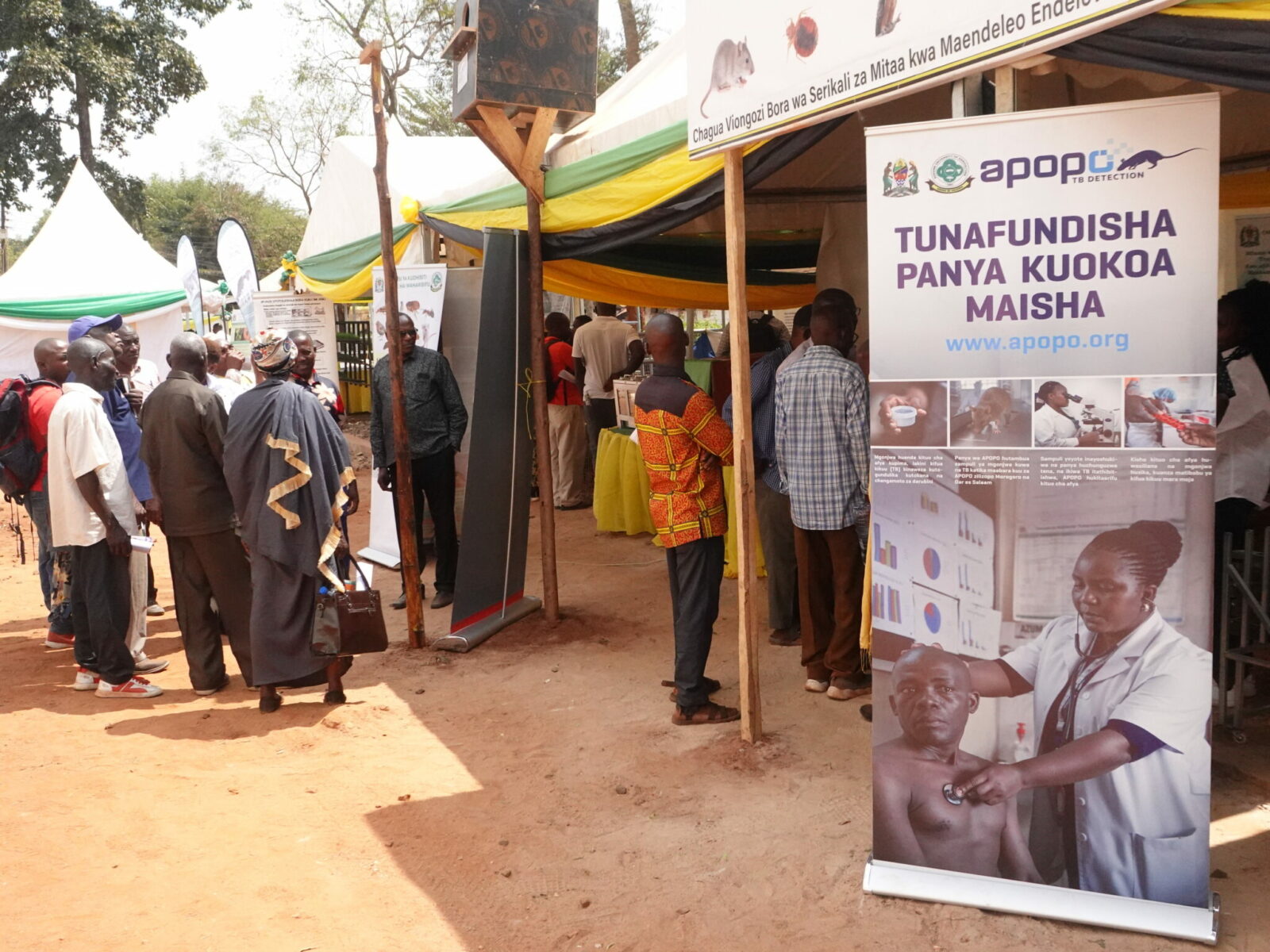
We also introduced our Mine Detection Rats (MDR) program, where these highly trained rats work to locate landmines. Using their acute sense of smell, MDRs are able to detect explosives buried in the soil. This program is a critical part of our efforts to clear landmines and other unexploded ordnance, making previously dangerous areas safe for communities.
At APOPO’s stand, we set up a space for a live demonstration of our search and rescue rats. These rats are trained to locate survivors in disaster scenarios, such as collapsed buildings. In the simulated environment, visitors could observe how these agile animals navigate through debris to find and signal the presence of trapped individuals, showcasing their potential in life-saving operations.
In addition to these, we also presented our wildlife detection rats, a program aimed at curbing the illegal wildlife trade. These rats are trained to detect the presence of illegally trafficked wildlife products such as pangolin scales or endangered timber, playing a vital role in conservation efforts.
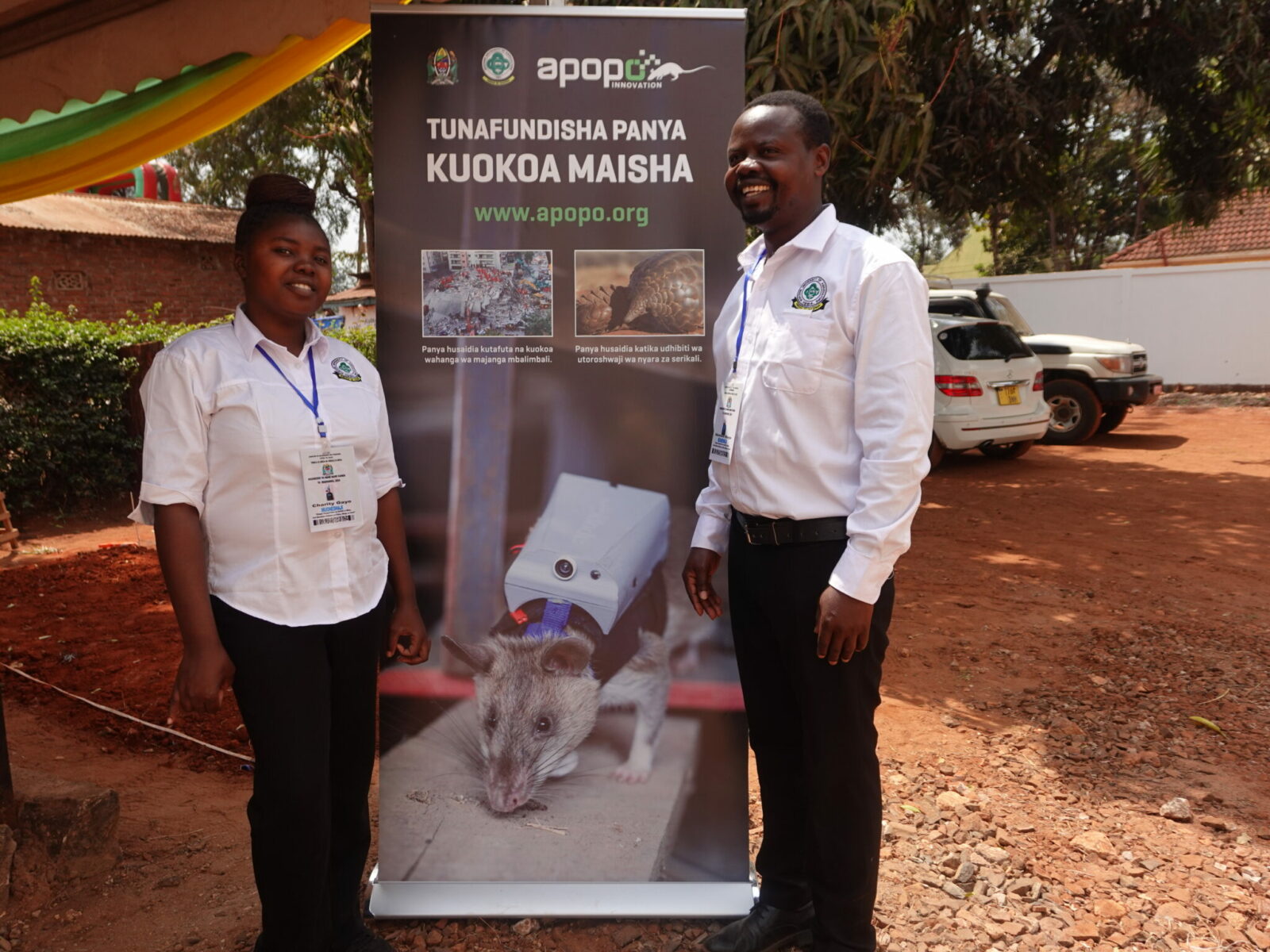
The response to our demonstrations was positive. Students, media professionals, and other attendees expressed their appreciation for the work being done at APOPO. The event clearly highlighted the significance and impact of our initiatives in tackling global challenges.
APOPO and SUA’s Positive Partnership
APOPO, collaborating with SUA, continues to make significant strides in addressing climate change through its HeroTREEs program, which focuses on the use of Syntropic Agroforestry. This initiative educates and empowers communities to plant trees and crops alongside each other, promoting environmental restoration, food security, and increased economic opportunities. The program is part of APOPO’s mission to create safer, healthier, and more prosperous communities by addressing environmental and social challenges using innovative solutions.
On August 5, Coastal Regional Commissioner Abubakari Kunenge urged participants at the exhibition to prioritize research that benefits the community, emphasizing the importance of innovation and tangible impact. In line with this vision, APOPO is leading the way with its cutting-edge research programs.
In addition to our partnership with SUA through the HeroTREEs initiative, APOPO plays a crucial role in addressing various community challenges. Using our innovative rat technology, APOPO has contributed to the fight against tuberculosis, screening over 900,000 sputum samples and increasing clinic detection rates by more than 30,000 new cases (41%). Finding these additional cases is estimated to have prevented around 300,000 potential new infections.
APOPO’s efforts in locating and clearing landmines in conflict-affected areas worldwide have led to the detection and destruction of over 160,000 explosives. This has resulted in the clearance and return of 110,000,000 square meters of land for socio-economic activities, freeing 2.2 million people from the threat of landmines and other explosives.
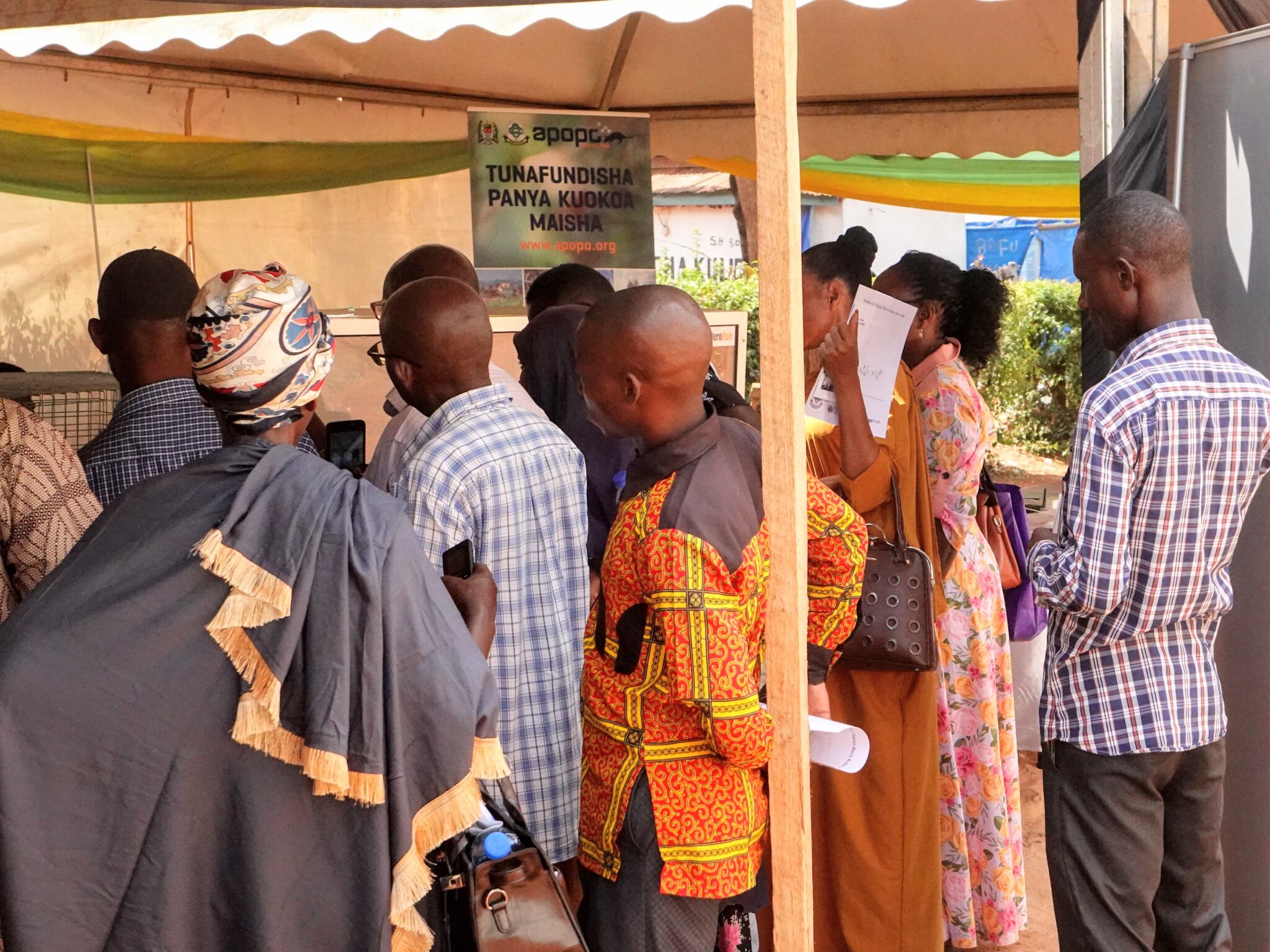
APOPO’s search and rescue program employs specially trained rats to assist in locating survivors in disaster-stricken areas. These rats are trained to navigate through debris and rubble, using their keen sense of smell to detect human scents. Their small size and agility allow them to access spaces that might be difficult for human rescuers to reach, significantly enhancing the efficiency and effectiveness of rescue operations. This technology will particularly be valuable in large-scale emergencies such as earthquakes or building collapses, where quick detection of survivors can be critical.
Another innovative application is in combating illegal wildlife trafficking. These wildlife detection rats are trained to identify and alert human colleagues to the presence of illegal imports of wildlife products such as pangolin and hardwoods. By using their highly sensitive olfactory abilities, these HeroRATs will help to intercept illegal shipments and prevent the trade of endangered species. This program will play a crucial role in conservation efforts and the protection of wildlife from poaching and illegal trade.
All these programs exemplify APOPO’s commitment to leveraging innovative technology for humanitarian and environmental impact, showcasing how research and practical application can work together to address pressing global challenges.
The event concluded on August 8, 2024. During the closing ceremony of Farmers Day in Tanzania, retired Prime Minister Mizengo Peter Pinda delivered a heartfelt tribute to Sokoine University of Agriculture (SUA). He praised APOPO’s partner SUA for securing second place, behind the Tanzanian Agricultural Research Institute (TARI), among training and research institutions at the exhibition, acknowledging the university’s substantial contributions to agriculture.

